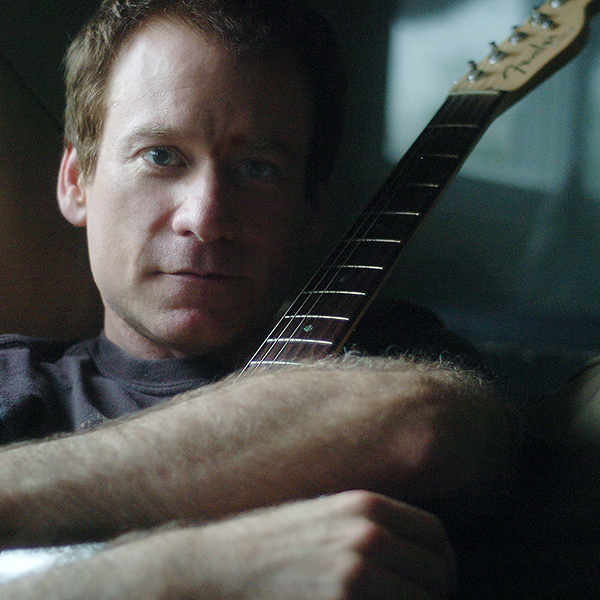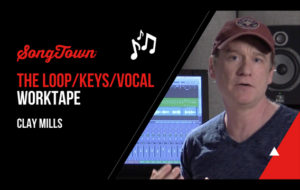by Clay Mills
Mar 28, 2024
Daniel Ross is a Songwriter and Producer at Big Machine Music Publishing.
His songs have been recorded by Morgan Wallen, Jake Owen, Chase Rice, Eli Young Band, Granger Smith, RaeLynn, Seaforth, Robert Counts, Troy Cartwright and more. Production credits for Joey Hendricks, Lauren Weintraub, Austin Burke and more.
In this video Daniel shares his proven track building philosophy.
Chapters
Chapter 1: Daniel’s Track Building Philosophy
Chapter 2: How do you start planning a track?
Chapter 3: Philosophy of a pop track
Chapter 4: What instrument do you start with?
Chapter 5: The difference in Pop and Country Tracks
Chapter 6: Philosophy of a country track
Chapter 1: Daniel’s track building philosophy.
I think philosophy of tracking, which sounds like a big word, but really what that means is the way that you approach your track. It is different for whatever kind of person that you are and so I think that’s where you got to kind of understand a little bit of how you work.
A lot of times the creative mindset or the workflow is a little more scattered. For me, I think structure is important. That being said, I have to be able to map things out and see the whole big picture and know what my plan is going to be based on whatever song I’m tracking or what I’m doing.
If it’s a pop song, you’re going to look at it one way. If it’s a country song, you look at it another way. And then if its pop-country, you look at it another way. So, there’s kind of this thought process that goes in before you even head to the computer.
Chapter 2: How do you start planning a track?
You start by thinking of the idea and what you want the song to sound like in your head. So that way, when you pull up a synth patch, you know what kind of synth patch you’re at least going for. Or at least you have the sound in your head and you’re saying, okay, well, this is kind of the sound that I’m going for.
Sometimes you would even use a reference track, which is important. This is also part of the philosophy. If you’re saying. Okay, I want this song to sound like a successful pop song that would make it to the radio. Then you need to listen to a successful pop song that has made it to the radio. By doing this you hear what they’re doing and listen to those elements and maybe make a song that has a similar vibe to what they’re doing.
Chapter 3: Pop track building philosophy.
So, with a pop track, my philosophy going in, I think this is where it’s extremely important to be listening to what’s current and what’s out there because it changes so fast in pop music. Some of the elements that you hear in pop music really come from hip hop. It drives the rhythm sections of pop music. We’re in a time now where you have like a paint brush palette and you have all of these different flavors of music that are just kind of being mixed together. Then you have this wide range of sounds and all the stuff that’s being put together.
With that being said, depending on the type of song that it is, if it’s an up-tempo song, I’m generally going to go listen to the Top 40 and say what is current right now that’s working on the radio. I’m going to listen to a couple of them, get a vibe for what they’re doing and maybe look at the rhythm section from the songs, look at the chord structure from a song and then maybe I’m going to get the groove from this other song. That way I at least have some sort of a structure going in.
Chapter 4: What instrument do you start with?

Personally, I always start with drums, no matter what it is. If we’re talking about taking a song that you’ve written and making a track, you already know how you wrote it and you know how it felt when you wrote it. So, I think it’s easy for me to say, all right, I know this is where the first verse is going to hit. This is where the pre-chorus is, this is where the chorus is going to hit. So I build my drums to carry out a lot of the energy.
And that’s where it’s important for having those reference tracks as well. The songs that you listen to from the radio, because if their song starts out and it’s maybe just a little synth pad and that’s all it is, but the synth pad maybe has a little bit of rhythm, then you’re not going to want to bring the drums in until the first chorus.
Chapter 5: The difference in pop and country tracks.
I think especially for pop, making sure that it sounds like it belongs in whatever time period you’re in. Or that you’re pushing the boundaries in some way. I think a lot of times the production of a pop song is really going to be five to seven years ahead of, in terms of technology, where a country song is going to be, because that’s just the way historically it’s gone.
I think it’s really important for pop as well to always have something rhythmic going on. Even if you’re starting out with a pad or you’re starting out with some sort of a synth, it needs to have a rhythm or structure in the same way that in a country song, the guitar a lot of times will carry that. Also, the instrumentation should always support the melody hooks that are going on in the vocal.
Chapter 6: Country track building philosophy.
Historically country music has had live musicians track the whole song. I mean, that’s what Nashville is famous for. And there are great live musicians here that do awesome stuff. I love that. I love that about Nashville. In country music tracks I’m kind of going to build the foundation for the song and then I’m going to track some live guitars and stuff over it and kind of get it going.
Then, a lot of times they’re going to bring in session musicians to go over the top of it. And so really they’re going to take away my guitar parts because I’m just not a session guitar player and these guys are just phenomenal. So, they’re going to take away my guitar parts, my bass parts and they’re going to track over top of it.
So my focus in a country track is more to create the rhythm and the groove and the feel of it. A lot of times that’s also depending on the song though. If it’s a super progressive country song, it does happen sometimes where they take your track and then they’ll maybe bring in one session guitar player and then they upgrade it to a master that way as well.
These days it’s pretty easy to build an affordable home studio and produce record quality music. I hope my track building philosophy gets you started on your path to creating great tracks that inspire the world!
share
Write Better Songs Faster
Songwriting Success is Clay & Marty's 10-day video series that will help you level-up your songs and finish them faster. Enter your email address to get started!



